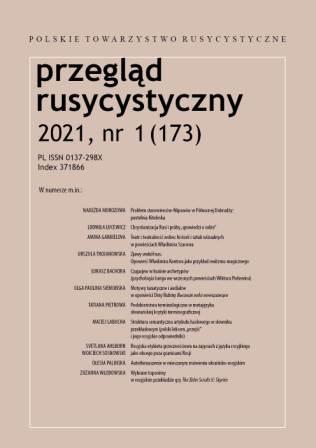Czapajew w krainie archetypów (psychologia Junga we wczesnych powieściach Wiktora Pielewina)
Chapaev in the land of archetypes (on Jung’s psychology in Victor Pelevin’s early novels)
Author(s): Łukasz BachoraSubject(s): Fiction, Russian Literature, Psychoanalysis, Theory of Literature, Sociology of Literature
Published by: Polskie Towarzystwo Rusycytyczne
Keywords: Victor Pelevin; Carl Gustav Jung;
Summary/Abstract: In the article author makes an attempt to look at the early novels of Victor Pelevin through the prism of Carl Gustav Jung’s analytical psychology. Such approach is justified by the intra-textual signals included by the writer in his work, as is shown in the article on the example of the novel Chapayev and Pustota (1996, published in the US under the title Buddha’s Little Finger and in the UK as Clay Machine Gun). Subsequently, other early works by Pelevin — from his debut novel Omon Ra (1992) up to and including Empire V (2006), with particular emphasis on Generation P (1999) — were subjected to analysis, from which a conclusion was drawn, that when analysed from the analytical psychology’s perspective, the process of individuation — one of the most important points in Jung’s theory — appears to be the main theme of Pelevin’s early work.
Journal: Przegląd Rusycystyczny
- Issue Year: 2021
- Issue No: 173
- Page Range: 100-115
- Page Count: 16
- Language: Polish

